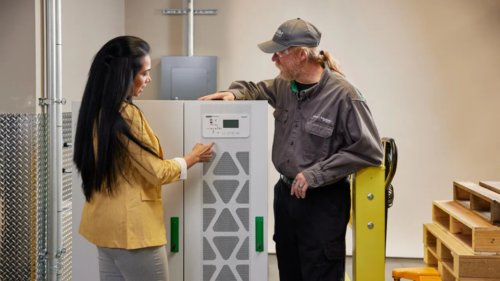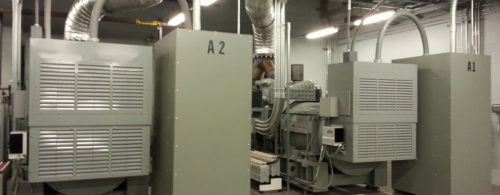Military keep cool in Texas
When new air conditioning equipment was needed at the massive Randolph Air Force Base in San Antonio, the federal government turned to HTS Texas.
Summer in South Texas can be sweltering, to say the least. So when new air conditioning equipment was needed at the massive Randolph Air Force Base in San Antonio, the federal government turned to HTS Texas.
With more than 10,000 people living and working on the south-central Texas military base, where temperatures reach average highs above 90 degrees and humidity soars to more than 80 percent each summer, air conditioning is a vital component of employee productivity and, therefore, a company’s bottom line.
Such high-demand air conditioning systems can consume a great deal of energy if not properly designed with state-of-the-art technologies. So base officials recently launched renewed energy conservation efforts to reduce utility payments, which are approximately $500,000 over budget so far this year, due in part to a 7% rate increase by City Public Service (CPS), the San Antonio power company.
Base officials earlier this year tapped HTS Texas to outfit the 200,000-square-foot, U.S. Green Building Council LEED-Silver-certified military facility with more efficient HVAC equipment. That equipment includes a McQuay magnetic bearing chiller, McQuay air handling units, and Enviro-Tec Variable Air Volume (VAV) boxes in a system designed for energy efficiency. Additionally, the Air Force base will stringently follow its base policy of leaving air conditioning settings between 76 and 78 degrees during the summer.
The project received a $67,500 rebate just for installing the magnetic bearing chiller. That significant rebate from CPS was possible because of the power company’s commercial rebates on the replacement of older equipment with new, highly efficient equipment.
The magnetic bearing technology used in the McQuay frictionless centrifugal chiller provides superior energy efficiency by eliminating the high friction losses of conventional centrifugal compressors, according to McQuay. For example, the chiller requires less than two amps to start, compared to 500 to 600 amps for a traditional screw compressor chiller. And, because magnetic bearings require no lubrication, there is no need for oil heaters, oil coolers, oil pumps, or oil piping.
“We are all about providing the most efficient HVAC equipment available because it makes the most sense for our clients, both from a comfort and financial standpoint,” notes John Winckler, HVAC Systems Consultant with HTS Texas’ San Antonio office. “High energy-efficiency system designs save money in the long run—an investment building owners understand offers greater return.”
Information provided by HTS Texas.
Do you have experience and expertise with the topics mentioned in this content? You should consider contributing to our CFE Media editorial team and getting the recognition you and your company deserve. Click here to start this process.




